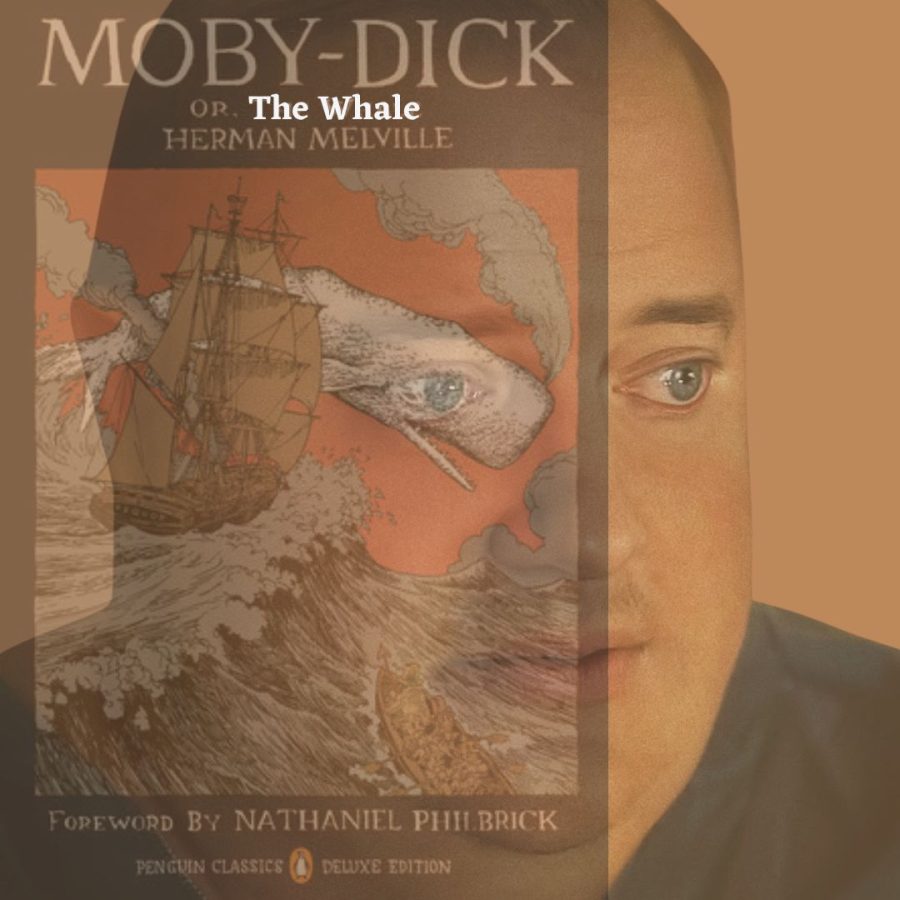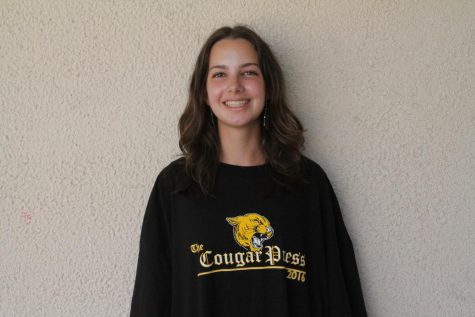Opinion: Darren Aronofsky’s “The Whale” is a raw portrayal of obesity as a manifestation of misery
The full title of the novel “Moby Dick” is “Moby Dick or, The Whale,” the latter which the title of Aronofsky’s film takes from. Graphic by: Katie Rundle
February 7, 2023
Aronofsky’s film reminds audiences that a person’s humanity does not reside in their physical appearance
When trailers for director Darren Aronofsky’s “The Whale” released, audiences were unsure of what to expect from its seemingly humiliating title paired with the excessively large character of Charlie. Aronofksy’s filmography, however, hinted at the possible intention of his newest film.
Two of his most successful movies, “Requiem for a Dream” and “Black Swan,” both encompassed the topic of addiction, with the first film depicting drug addiction and the latter depicting an addiction to performing and striving for perfection. Likewise, “The Whale” portrays an addiction to food, something extremely prevalent in the U.S. but commonly viewed with less severity than drug or alcohol addiction.
Obesity in the media is often either glorified or mocked, with plus-size models being praised by the public while TLC shows such as “My 600-Lb. Life” are viewed as a source of entertainment for the audience to humiliate. Aronofsky’s film is a fresh contrast from these two extremities, as “The Whale” invites sympathy from its audience and does not attempt to glamorize nor demean Charlie’s weight and his struggles. Instead, it offers a raw and extremely vulnerable portrayal of obesity through graphic scenes of binge-eating in addition to scenes that depict Charlie’s difficulty in performing menial tasks, such as shaving or dressing himself.
Sophie Gonzalez ‘23 said, “I haven’t seen [‘The Whale’], but I think the concept is interesting and I’m glad the purpose of the film is to sympathize with those struggling with obesity instead of making fun of it.”

Charlie’s backstory helps the audience to sympathize with his state, as obesity is often judged without contemplation into what led that person to acquire so much weight in the first place. His partner, a man raised in a very religious family, killed himself due to his own religious uncertainty regarding whether his sexuality was a sin or not along with his family’s disapproval of his relationship.
Charlie, who had left his wife and child behind in order to be with him, was devastated after his suicide and took to eating to cope with his grief. In this way, Charlie is humanized and separated from his weight, as his tragic past encourages audiences to see past his appearance to reveal the broken person underneath.
Jasmine Bruns ‘23 said, “I haven’t seen the film but I know it’s produced by A24 so that alone leads me to believe that it’s probably pretty good.”
Throughout the film, lines from the book “Moby Dick” are woven into scenes to metaphorically represent Charlie and his daughter’s relationship as well as provide explanation for the film’s title. The novel follows captain Ahab, who seeks to kill the whale Moby Dick because the creature had crippled him on his previous voyage. Charlie’s daughter Ellie represents Ahab, as she seeks to hurt Charlie throughout the film because of the anger she feels from being abandoned by him. Her mother, Charlie’s ex-wife, believes that Ellie is a failure and can’t be helped due to her poor grades and cruel nature, but Charlie is an optimist and believes that his daughter is a kind person underneath the armor of hatred she has created as a defense. Although “Moby Dick” ends with the whale sinking Ahab’s ship and swimming away triumphant, the film ends with Charlie and his daughter finally reconciling right before his death– allowing him to die as her father rather than the whale she had always seen him as.










